 The National Institute for Health and Care Excellence (NICE) produces guidance on the most effective ways to prevent, diagnose and treat disease and ill health, and provide social care support. Their guidance is based on research evidence and takes into account the views of people working in or using relevant services, and other stakeholder groups.
The National Institute for Health and Care Excellence (NICE) produces guidance on the most effective ways to prevent, diagnose and treat disease and ill health, and provide social care support. Their guidance is based on research evidence and takes into account the views of people working in or using relevant services, and other stakeholder groups.
NICE is currently looking for patients and their advocates (usually referred to as ‘lay members’ at NICE) to join the committee developing the guideline on Rehabilitation after Traumatic injury. …
Read more of this article


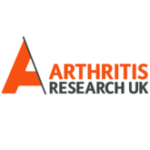
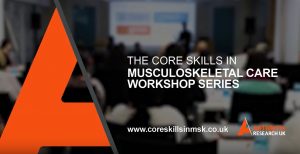 Arthritis Research UK has developed the educational package
Arthritis Research UK has developed the educational package 
 The Fit4Change app converts miles to money for charities, giving an extra incentive to take regular physical activity that will improve your MSK health. You can use it for running, walking, cycling and exercising indoors.
The Fit4Change app converts miles to money for charities, giving an extra incentive to take regular physical activity that will improve your MSK health. You can use it for running, walking, cycling and exercising indoors.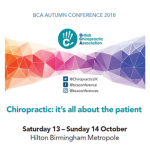

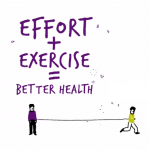
 ‘Love Activity, Hate Exercise?’ addresses the emotional as well as physical barriers millions of people with long-term conditions face in being more physically active.
‘Love Activity, Hate Exercise?’ addresses the emotional as well as physical barriers millions of people with long-term conditions face in being more physically active.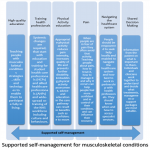
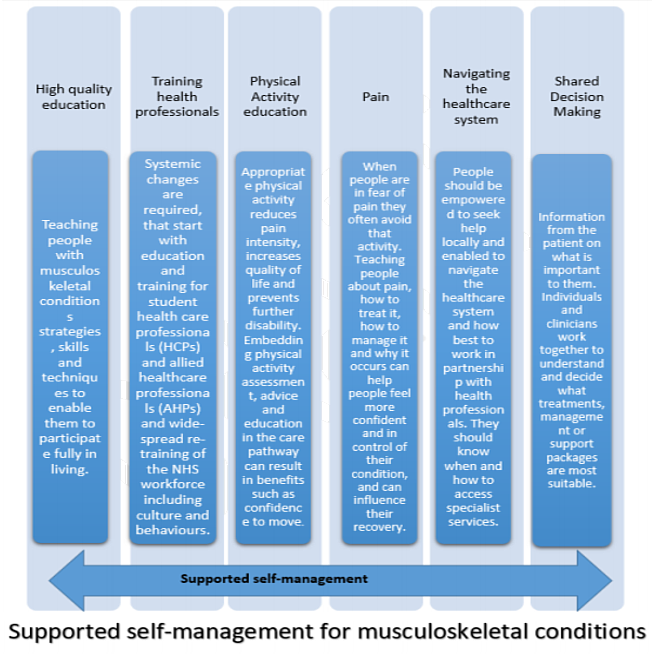

 “No health without MSK health”. Those were the words of our guest speaker at the ARMA AGM and they clearly struck a chord with members. They were on my mind last week when I attended a consultation meeting held by NHS England about the new ten-year plan for the NHS. At the moment MSK health doesn’t get as much profile as conditions such as mental health, cancer or cardiovascular. Not to downplay the importance of these conditions, but MSK health underpins all aspects of our ability to be independent and lead the active lives we want.…
“No health without MSK health”. Those were the words of our guest speaker at the ARMA AGM and they clearly struck a chord with members. They were on my mind last week when I attended a consultation meeting held by NHS England about the new ten-year plan for the NHS. At the moment MSK health doesn’t get as much profile as conditions such as mental health, cancer or cardiovascular. Not to downplay the importance of these conditions, but MSK health underpins all aspects of our ability to be independent and lead the active lives we want.… 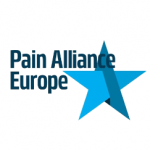
 With the help of their partners and endorsers, Pain Alliance Europe has created a Framing Paper and Joint Statement: policy documents that analyse the existing initiatives and remaining gaps in policy actions to tackle the impact of pain on societies, economies and individuals.
With the help of their partners and endorsers, Pain Alliance Europe has created a Framing Paper and Joint Statement: policy documents that analyse the existing initiatives and remaining gaps in policy actions to tackle the impact of pain on societies, economies and individuals.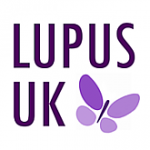

 Incisive Health is supporting AbbVie with the organisation of their Big Ideas for Better Health Awards, which are designed for healthcare professionals and patient groups. They present an opportunity to recognise, celebrate and share exceptional examples of improvements and innovation that demonstrate clear benefit to the lives of patients.
Incisive Health is supporting AbbVie with the organisation of their Big Ideas for Better Health Awards, which are designed for healthcare professionals and patient groups. They present an opportunity to recognise, celebrate and share exceptional examples of improvements and innovation that demonstrate clear benefit to the lives of patients.